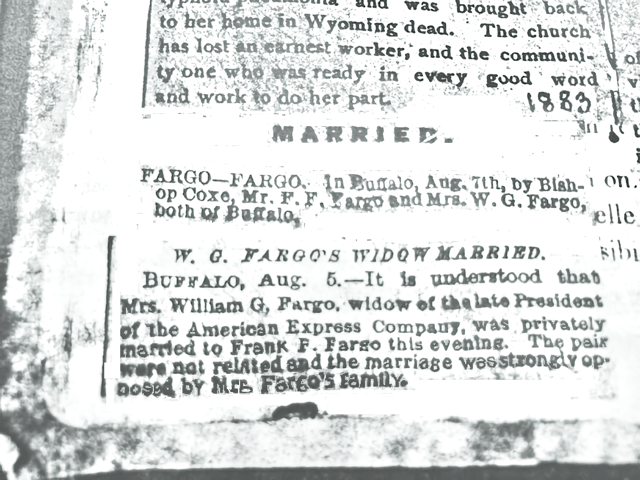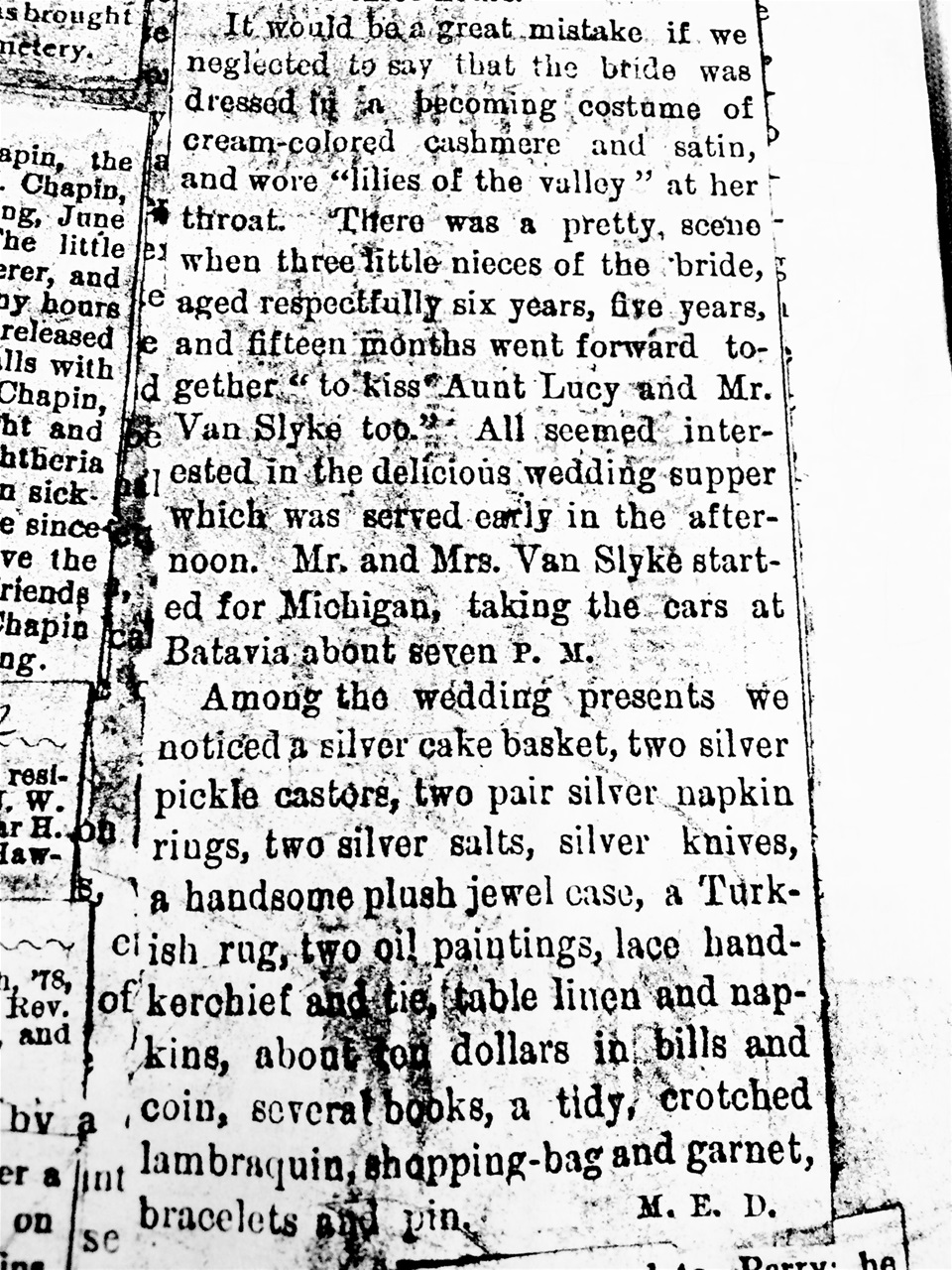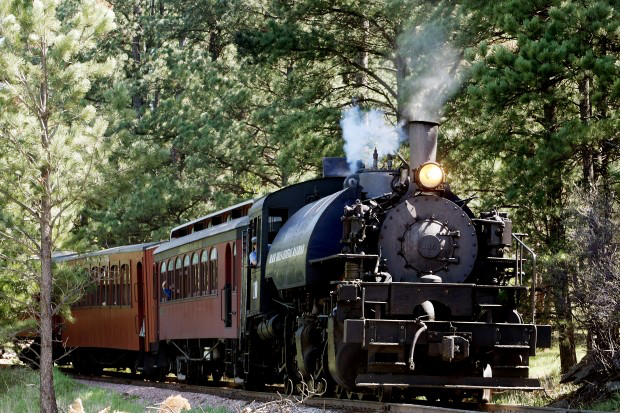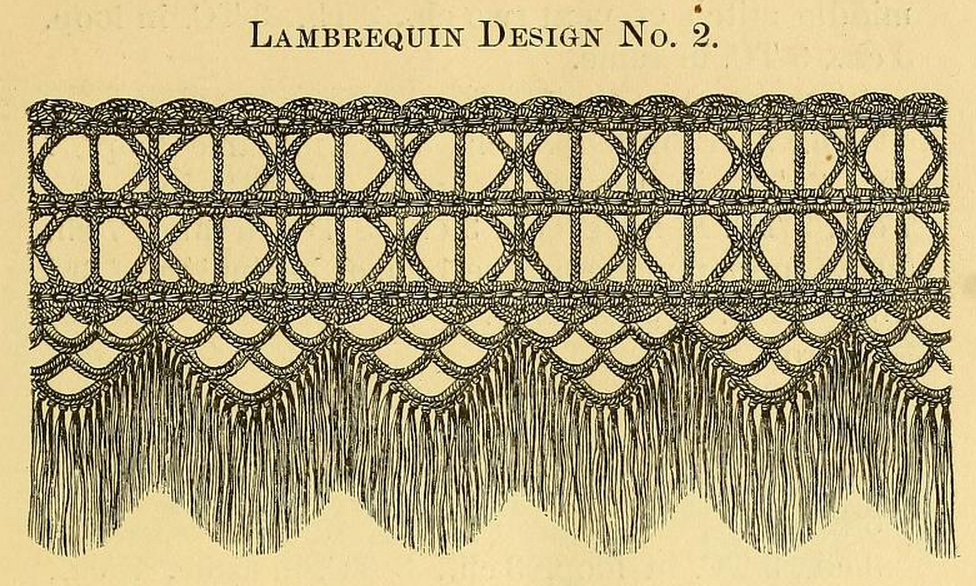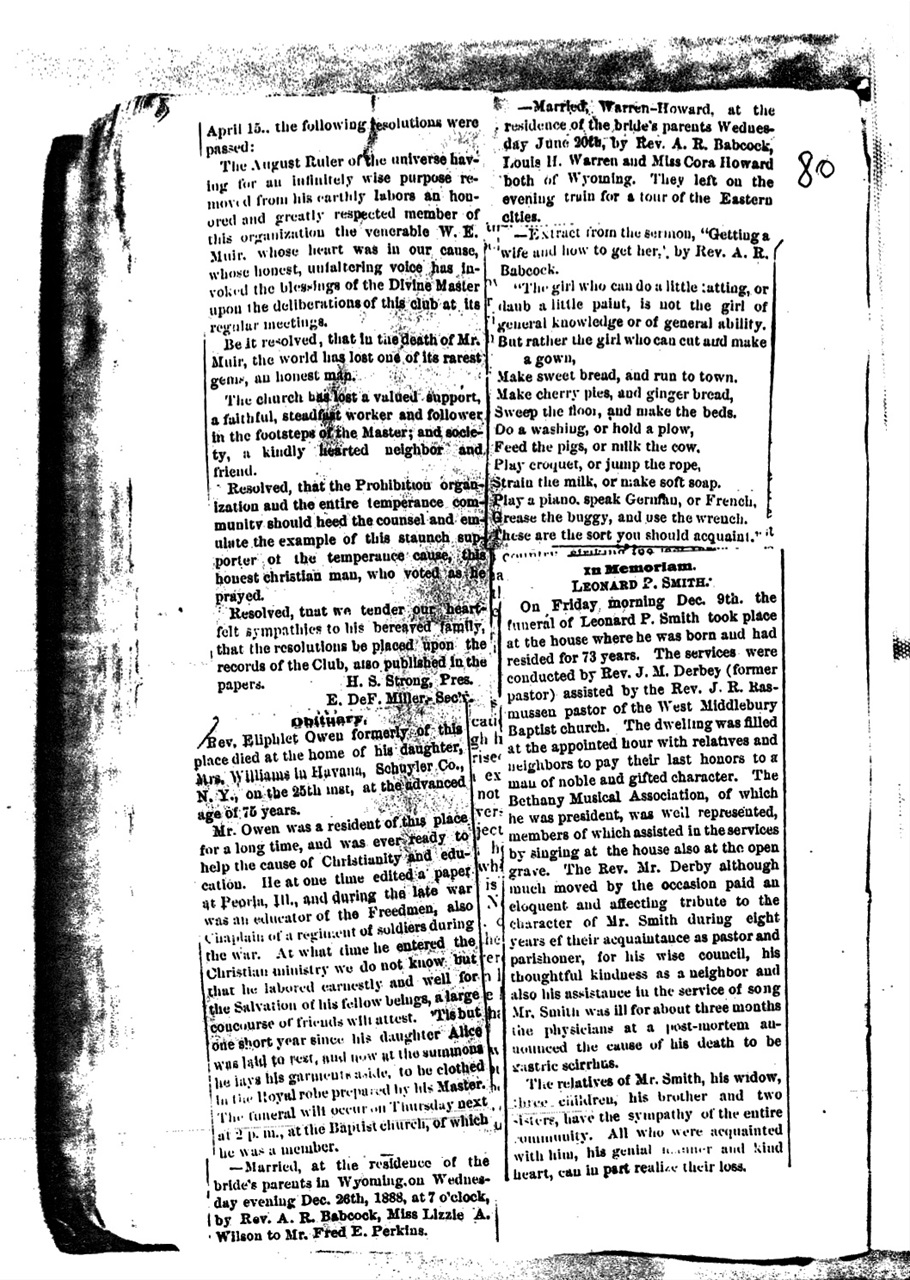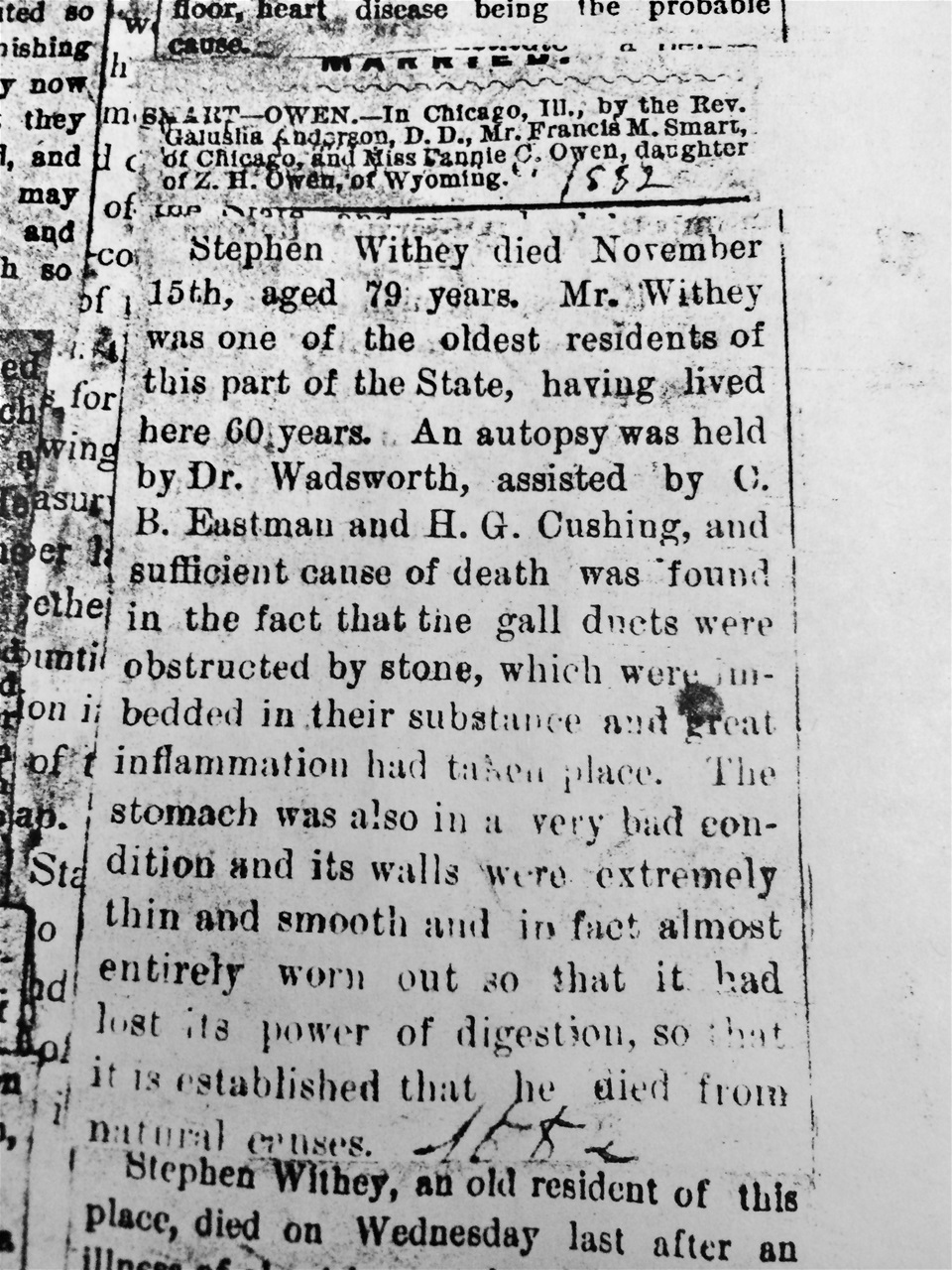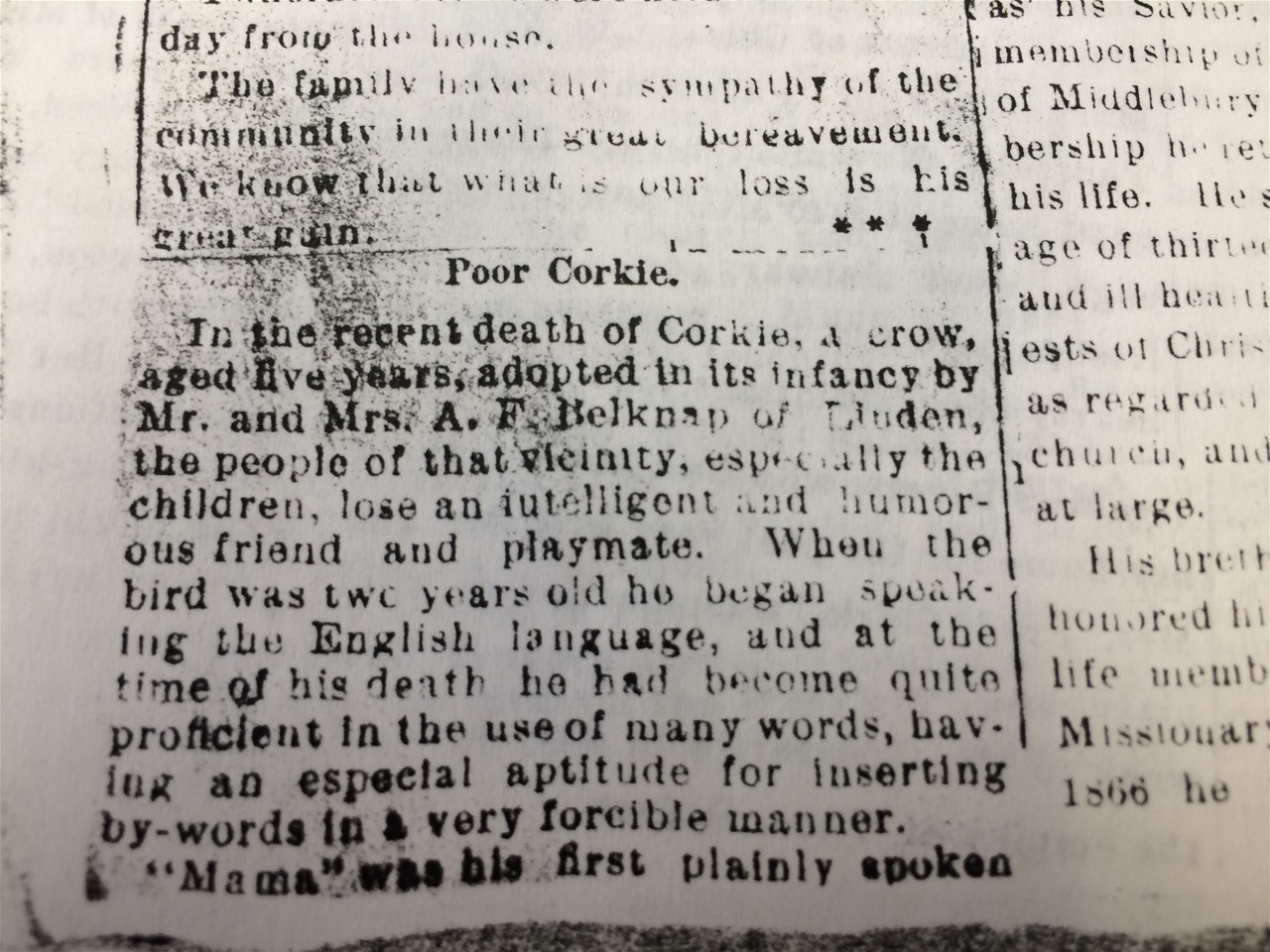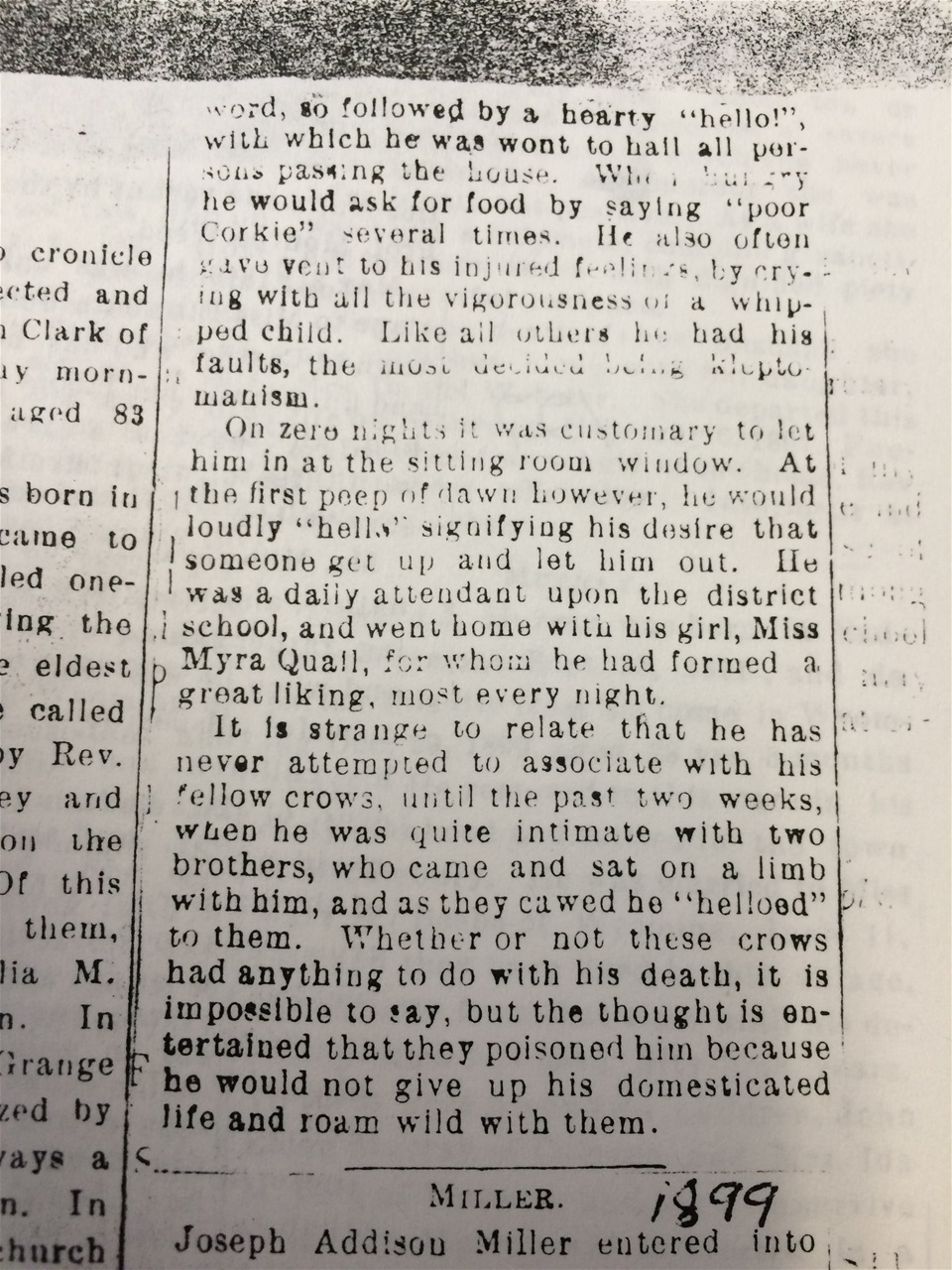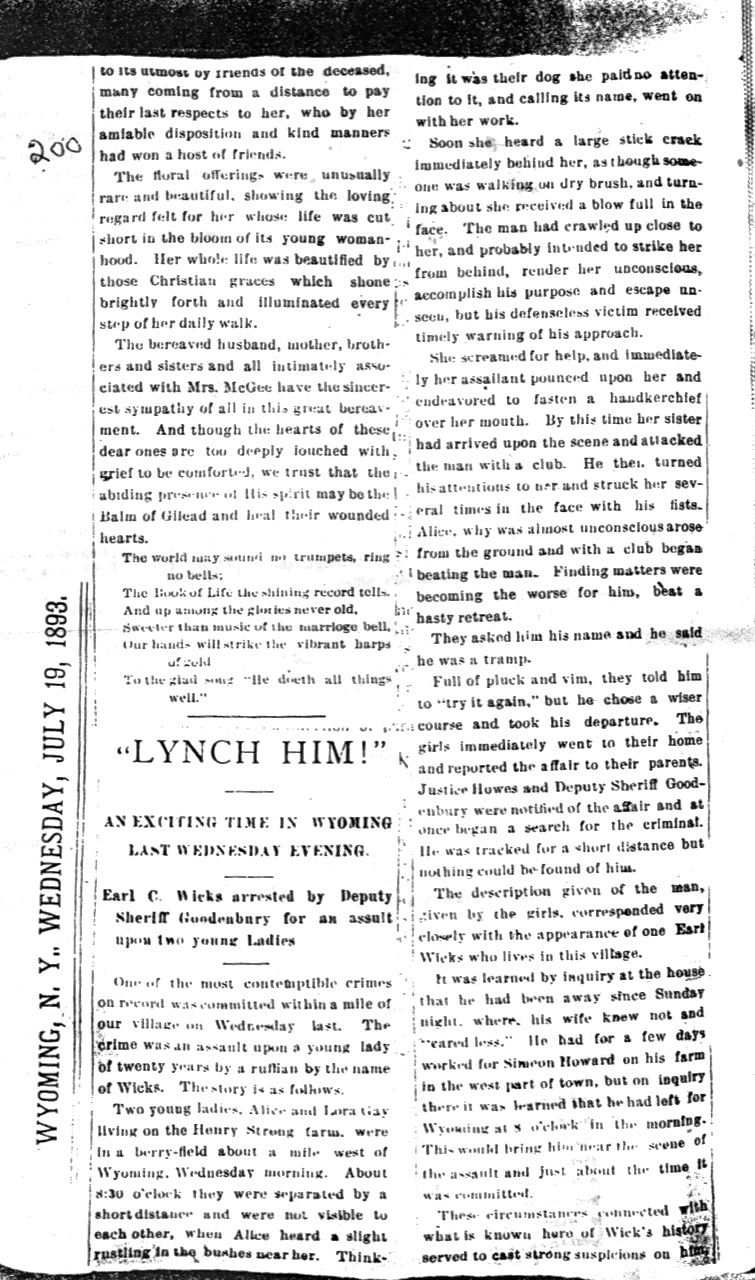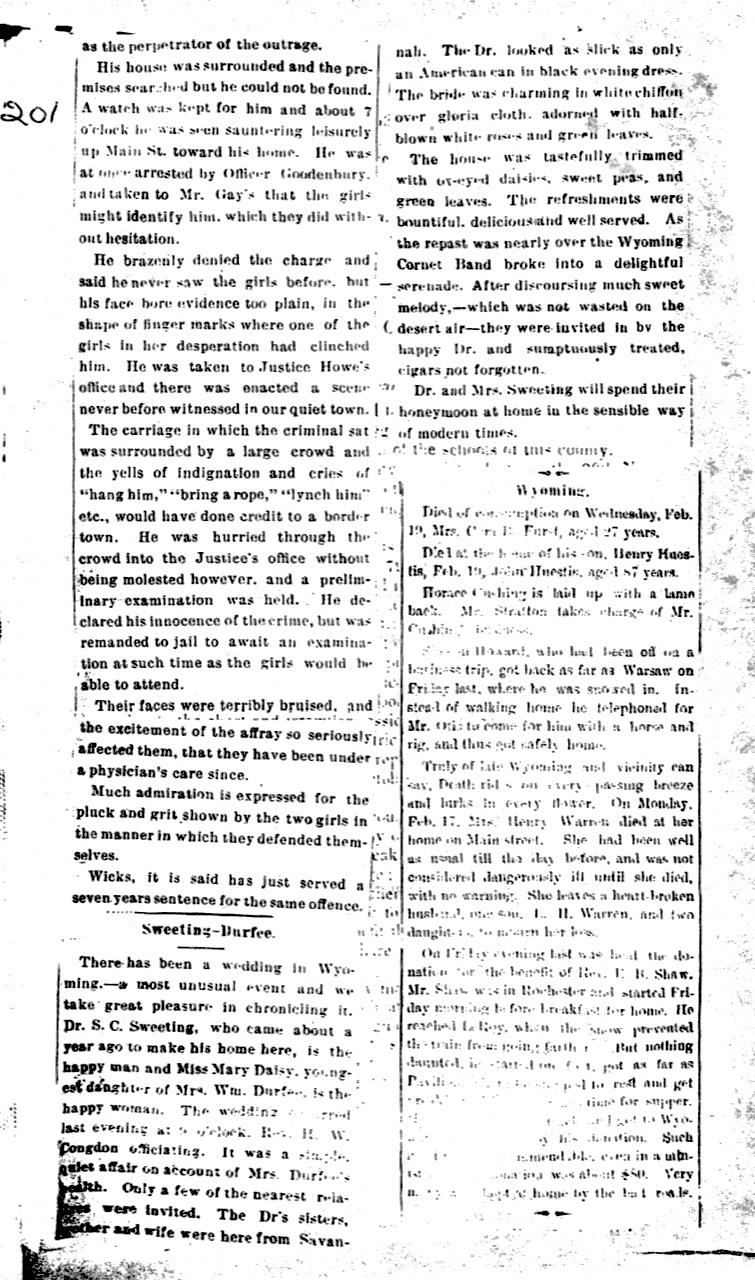So many thanks to all of you who wrote kind comments about our last post, the life of great-grandfather Henry Warren. If you have followed along the other blog posts about my Bailey and Warren families you will remember the plan for this next one was to tell about Cora Howard Warren and Julia Warren, my grandmother and great-aunt, women who lived in western New York state from the end of the 1800's through the first decades of the 1900's, an interesting time for women in American history. If you'd like to see those first stories again, they are still right up there, just click on "Previous Posts" above.
Now, of course, COVID-19 has descended. Doors to research libraries and town historians' offices are closed firmly in our masked faces. Cora and Julia will have to wait. For a writing project these days it is suggested we journal during the unique virus pandemic we are living through to preserve our experiences and feelings for history. Well, I'm sorry friends, but it's beyond me how you'd make a good story out of "Well, today was quite a lot like yesterday, and I didn't sleep too well again last night...." for months on end. We will leave that to more creative folks. But stick around please because I do have an idea at the ready. (Did you doubt?) We will forge on undaunted. Or very minimally daunted at most.
Here is........
Plan B:
Some Interesting Things I Found While Looking For Other Things
While I was researching earlier family posts I occasionally ran across an idea or a newspaper story I thought was fun, funny, or worth a later look. When this happened I snapped a quick photo with my cell phone to remind me to return for a more thorough inspection. These cell photos are dark, they are murky and they are poorly framed. They are, however, what we have. I can't go back now to the county historian's office for a do-over, it's closed (though Cindy Amhrein, the Wyoming County historian, has kindly helped very much via texts). With the exercise of patience about the picture quality, I hope you, too, might enjoy thinking about these stories.
And, hey, do you have other plans for this afternoon??
Read over this seemingly innocuous marriage announcement from 1883, "W. G. Fargo's Widow Married". The one at the bottom up there, then we'll talk.
It is seldom in my experience that one inch of column space has raised so many questions and left us with so many unanswered. Our gossipy minds take off without us, stopping with a screech at that last sentence which reads, "The pair were not related and the marriage was strongly opposed by Mrs. Fargo's family." Now, back to the beginning. This one obviously needs a second look.
The story begins "It is understood that Mrs. William G. Fargo [we never learn her first name], widow of the late President of the American Express Company, was privately married...." Right there we are given to know that this is not the standard wedding announcement that a bride might place in the paper to celebrate her happy day. That "It is understood" lends this tale a slightly furtive feel and leads us to think the news was probably shared by one of the disapproving members of the new Mrs. F-F's family, no doubt the anxious spawn of Mr. Fargo #1 who see Papa's fortune about to waft off, along with their mother, to co-habit with Mr. Fargo #2. Wouldn't be the first time as we all well know. Families behave this way to this very day. For us, we have nothing but hope that the new Ms. Fargo Fargo was content and dotingly cared for by Mr. Fargo II for all her remaining days. And of course, that there was plenty of money to go around for everybody.
I am in awe of the artistry of the writing in this little piece, brilliantly crowned with that dark unibrow of a headline, W. G. Fargo's Widow Married--there's her deceased hub glaring directly down upon the news of her happy day. If there were a Pulitzer prize in Journalism for the fewest words that convey the most story, I think we'd be looking at it right here.
Most of these news clippings that caught my eye were harvested from the local weekly paper, The Wyoming Reporter, by Evie Fancher who lived in the countryside outside the village of Wyoming, NY. The road she lived on, MIller Hill Road, can't be found on maps any more, but on a 1902 map my friend Bob Kelley found several Miller families living on the present Fox Road, a couple miles from the village and up a steep hill. This is probably where she lived, on a farm. Evie started her social news scrapbook when she was about 16 and kept it up to date until she was 52. It is a compilation of newspaper accounts of local events, weddings, parties and deaths in her town over the years from 1878 to 1912.
What we can know about her from her scrapbook is that she had a sharp inner awareness of human quirks and foibles and pretty surely a sense of humor about human behavior. There's never judgment here, nary a note nor an exclamation point in the margins in all those years. Rather she simply observes, selects, and glues down these snippets about passing joy and drama and sadness of life in her town that fill the many pages of her scrapbook. That it is a pretty distant town if you had to get there by horse, as she did, may be a part of her motivation to preserve a social "life" in her book. We can't know.
I hope she can know what a precious gift she left for us. As much as the stories she chose show us changes in social practices over the last 150 years, they show just as clearly that much is exactly the same. Humans are still just as odd and funny, just as mean and competitive and self-righteous as they always were.
To illustrate, here's another wedding announcement. This one a more joyful family occasion. Because of my afore-mentioned haste and lack of care with these photos, we are missing even the names of the celebrants of this occasion, but I'm thinking 1878 because of a date nearby in my notes. But the story of the wedding is carried to us, what do we take from it?
Well. That touching scene in the first paragraph! All these many years later we are still moved when we read the "pretty scene" of the two little girls and their tiny sister, as yet barely walking, bravely going down the aisle to kiss Aunty and their new uncle amidst the beautiful wedding flowers. We nearly get tears at a wedding that took place 140 years ago.
We note that after the reception the couple "took the cars" at Batavia and were off for their honeymoon. In my own grandparents' wedding announcement which comes later in Evie's scrapbook, we are told the newlyweds Cora and Lewis Warren took the evening train from Wyoming for a tour of the Eastern Cities.
Wouldn't it be wonderful to have that back again, just simply go down to the depot and board a lovely clean train off to wherever you'd like to go? There'd be the dining car for your beautifully served meal with crisp white table linens and real tableware, a passing scene to enjoy as the rhythmic clackety-clack of the car carries you toward your destination. Let's go!
Bear with me now as we back-track a bit. ( Don't miss that one. I readily admit I am not a pun lover but one does occasionally indulge.) It's that last paragraph in that particular wedding story that drew me to this one. Published wedding announcements are nearly a thing of the past now that newspapers themselves are nearly gone. Even those of us who remember them being an important part of plans for a proper wedding probably don't remember the time when all the couple's presents were listed for the public's inspection in the announcement. What's the purpose of this custom? What's the point, we ask? Isn't this a subtle way of establishing where in the village social and economic order the new couple will fall? We can plug them right in to the social stratum where they belong by noting the number and costliness of their gifts. In another couple's announcement from about the same time the names of the donors are listed right next to their gift. So if you gifted the shopping bag or a book or the handkerchief, let's say, and were not the donor of the silver cake basket or the handknotted Turkish rug, it tells us a little something about you, my friend, oh yes it does! There's pressure there.
Today we have stopped this practice. We use Gift Registries and direct Amazon shipping for presents, and we pride ourselves on not caring about class or who has more money-- we all carefully dress the same in jeans and tee's. But we still have ways, don't we? Our shoes, of all things, still send a signal about who we are and What We Have. Women's purses make a similar statement--expensive or not, or VERY expensive. Maybe it's not the same thing at all, I dunno. It's what came to mind.
En fin, friends, we cannot leave this piece without noting that yes, we did catch that the children were aged "respectfully" and not respectively as the writer surely meant. We will let that pass without comment--it could happen to us if we were writing fast, racing to meet a deadline. But that instance of the gift of a "crotched lambrequin" is another thing altogether. As a lover of the fiber arts, as so many of my friends are also, we cannot pass over that one without pausing for a little smirk. It was a crocheted lambrequin, as we all well know. But I honestly admit I had to Google to learn precisely what a lambrequin is, be it crotched or plain. Here is a crocheted lambrequin of that period. It was a beautiful hand-made gift:
Take a look at a sample of one of Evie Fancher's entire scrapbook pages.
Throughout the years, and throughout Evie Fancher's scrapbook, events take place randomly and in close succession. Our sample page below carries a Resolution to honor a deceased member of a local temperance organization, two obituaries, one tiny marriage announcement, and at the top right, the marriage announcement of my grandparents, Cora and Lewis Warren, who married in 1888. If you have time, pause and read the poem the pastor selected for their marriage service, apparently thinking it was descriptive of Grandmother Cora. I'm sure he meant to convey that she was smart, resourceful and creative, as I know from family stories that she was. But it's hard to believe she enjoyed being described in front of her assembled wedding guests as being able to grease a buggy. Pastor Babcock meant well, we don't doubt.
We'll move on.....
As you saw on the page above, many of the clippings Evie included were obituaries. You noticed that the writing style for them is a bit more floral than is the custom now, when we often read, "died suddenly..." with no details given to us of the what, when and where. In contrast, here's a report of the death of Stephen Withey in 1882:
Just tell me that when you read that your shocked brain didn't shout, "HIPAA violation!!". Personally I've never seen the point of all the HIPAA fuss since they still give your health info to anyone they want to except your friends and family who are trying to help you. Still, this is way more than we need to know about poor Stephen Withey's innards gone awry, so why was it a custom to be so thorough in description? There are many other instances of this, some so grisly and graphic, as in after an accident, that I would not consider sharing them with you. Is it perhaps that now we screen ourselves from so much of the unpleasantness of the illness and death which they saw constantly that we just think it is TMI? That it is in fact just information we could know about a poor friend who is now gone, to be put in context with the rest of his life? To help us help his family through next days? Maybe that.
Just two more of Evie's choices I would like to share with you before we put an end to all this. The first will be a little unexpected but if you've stuck along this far I know you'll enjoy it.
And one last story.
This one is a couple pages long but I think it's worth it. It made me laugh--at first. There is drama and adventure. It even features eccentric village characters, so we easily picture an early silent movie comedy based on this event. But then with the other side of our mind, if we look at the writing as a simple news report reflective of attitudes of that time, it is upsetting for its complete blindness to justice for the poor and its rather patronizing and insensitive characterization of women. But people, we just cannot expect awareness of social changes 150 years down the road from this poorly paid newspaper reporter. We understand that he/she/probably he/ wrote it to capture and convey all the drama of an exciting event seldom seen in the quiet village, and with that standard it is surely a successful piece of writing which I admit I loved reading 150 years later. I am happy to share with you.
A plus for me--the story tells us the evil perp in the drama was a hired man on the farm of my great-grandfather, Simeon Howard. Or had been, more like.
Read "LYNCH HIM!"
Well, there. That's it for now. We'll get back to Cora and Julia when the world opens up again. For now, these stories have made a few dusty, sepia folks from the past spring to color and life and action again for a minute or two. If you like, please send me a comment because I'll love to hear what they brought to you and if you liked them as much as I liked finding them and writing about them.
Sue
